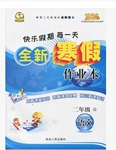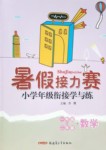题目内容
How would you like an easy way to earn $2,500? All you have to do is to sit around and wait for your meals. There’s a catch, however. You have to stay in a chicken cage with a stranger for a whole week. There are no books or television or radio for amusement. You can’t leave until the week is up. And a camera will be recording your every move.
Two people actually took the job. The idea came from Rob Thompson, a video artist. He wanted to make a film about the way animals are treated. His goal was to raise people’s awareness of the living conditions of animals that are raised for food. He decided to pay $5,000 out of his own savings to two people who were willing to live like chickens for a week.
To Rob’s surprise, quite a few people answered his advertisement. He had interviews and selected Eric, a 24-year-old restaurant worker, and Pam, a 27-year-old chemist. The plan was for them to spend seven days together in a chicken cage that was six feet long and three feet wide. A camera would record their experience, which would take place in an art museum.
The week was long and difficult. They slept on a hard wooden floor. They couldn’t stand up without banging their heads. They ate vegetables and drink water from a garden hose-pipe(橡胶软管). Their only privacy was a toilet surrounded by a curtain. There were no sinks, mirrors, or toothbrushes in the cage. Their only inspiration was the two framed checks that hung on the wall outside the cage. Visitors who came here were warned, “Do not feed the humans.”
Finally it was over, and Pam and Eric came out of the cage. They had survived the week, and they each had a $2,500 check in their hands. When Rob Thompson opened the cage, Eric came out, changed into clean clothes, and ate a chocolate bar right away. “It’s great for me to be able to stand up.” he said. Pam just changed her clothes and left.
 After a week of visitors and reporters watching her, she didn’t want to talk to anyone.
After a week of visitors and reporters watching her, she didn’t want to talk to anyone.1.What kind of person is Rob Thompson?
A. He is curious about people’s personal life B.He is kind—hearted to animals
C.He dislike people around D. He likes to help poor
 people
people2. The underlined word “catch”(in Paragraph 1) probably means _______.
A. unsolved problem B. surprising wonder
C. unbelievable condition D. hidden difficulty
3. What made it the most difficult for the two to stay in the cage?
A. That they had nothing for amusement.
B. That they couldn’t lie down to sleep in the cage.
C. That they had to do almost everything under others’ very eyes.
D. That they didn’t have meat to eat.
4. What would be the best title for this passage?
A. An Easy Way to Earn $2,500 B. Do Not Feed Humans
C. Living Like a Chicken D. Getting Along Well Anyway
小题1:B
小题2:D
小题3:C
小题4:C
略

练习册系列答案
 桃李文化快乐暑假武汉出版社系列答案
桃李文化快乐暑假武汉出版社系列答案 优秀生快乐假期每一天全新寒假作业本系列答案
优秀生快乐假期每一天全新寒假作业本系列答案 暑假接力赛新疆青少年出版社系列答案
暑假接力赛新疆青少年出版社系列答案
相关题目
 n anything else, and in the cases that come to our attention, more and more are linked to the Internet.”
n anything else, and in the cases that come to our attention, more and more are linked to the Internet.” quality of students’ coursework influenced by the World Wide Web
quality of students’ coursework influenced by the World Wide Web . recognizing C. allowing D. reducing
. recognizing C. allowing D. reducing